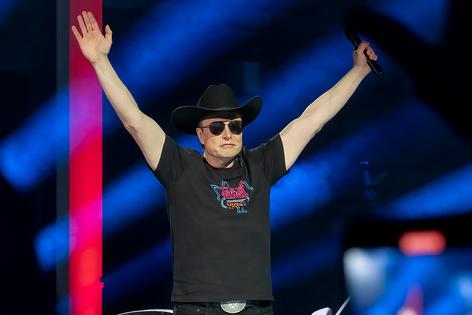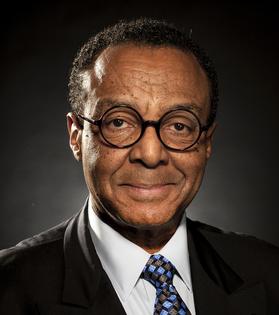Elon Musk’s Next Surprise? ‘Free Speech’ Has Limits
Although it may take several months for Elon Musk to complete his purchase of Twitter, reaction to the $44 billion deal was immediate and decidedly partisan.
On the right we saw robust #ThanksElon memes tweeted out on the social network, especially from folks who believe President Joe Biden’s election was “stolen” and call the Jan. 6 Capitol insurrection suspects “political prisoners.”
Rep. Jim Jordan of Ohio, top Republican on the House Judiciary Committee, tweeted that free speech is “making a comeback.”
Rep. Lauren Boebert of Colorado, who, along with Georgia Republican Marjorie Taylor Greene, loudly heckled the president during his State of the Union address, gleefully tweeted that Musk “now literally owns the libs.” Not quite.
But on the left, reactions to Musk’s deal varied from rage and sorrow to teeth-gnashing defiance. Democratic Sen. Elizabeth Warren of Massachusetts lamented the deal as “dangerous for democracy” and called for “strong” rules to hold Big Tech accountable.
Illinois Rep. Jesus “Chuy” Garcia tweeted “there’s so many better uses for that money, other than buying a social media company.” Indeed. But a social media company is what Musk’s buying, along with age-old arguments about how “free” speech can be before it becomes a menace.
Although Musk, the world’s wealthiest person according to the Bloomberg Billionaire Index, has not been specific about his plans, he famously calls himself a libertarian and free speech zealot who has long complained that Twitter’s moderation practices are too restrictive.
“Free speech is the bedrock of a functioning democracy,” he said in a statement announcing the deal, “and Twitter is the digital town square where matters vital to the future of humanity are debated.”
That’s a lovely sentiment, but as a longtime free speech — and free press — zealot myself, I know both to be an ideal that is easier to express than to implement.
For example, does one’s definition of “free speech” include bullying, harassment, hate speech and disinformation about the COVID-19 pandemic?
Digital-age media moguls at Twitter, Facebook, YouTube and other companies with an international reach have made grand promises of unrestrained expression, only to be humbled by reality into putting in restraints of their own, if only to save their companies’ profits, reputations and, possibly, their existence.
Junk mailers use social networkers to pitch a variety of shady schemes. Autocratic governments have weaponized social media to harass critics and spread lies to destroy reputations, incite violence and justify arrests — and worse.
The 2016 presidential election and that year’s Brexit vote in the United Kingdom turned out to be influenced by a horror show of disinformation, amplified by Russian internet trolls who further polarized the already-divided electorate.
Under increasing public pressure, social networks tightened their enforcement, reversing their previous attitude of “When in doubt, let it out,” sometimes snagging more posts than they should have and arousing customer anger.
When Facebook, Twitter and YouTube expelled Trump from their platforms after the Jan. 6, 2021, Capitol riot, it only confirmed in many minds the partisanship they already detected in the Twitterverse, as if insurrection talk should be OK.
I don’t think it should be OK. Musk hasn’t been specific about whether he would lift Twitter’s ban of Trump, who praised Musk’s deal but said he won’t even try to go back to Twitter.
We’ll see. I’ve followed Trump enough to know that would be a tough opportunity for him to resist, especially after stock in TruthSocial, Trump’s own social media venture, fell 12.9% Monday after Twitter announced its deal with Musk.
Trump loves a big audience like Yogi Bear loves honey, and TruthSocial has yet to produce one.
I expect Musk, who loves to clown around sometimes but has not been a fool about money, will find he is better off avoiding unnecessary clashes with Twitter’s current or potential users and advertisers. That means he, too, will have to strike the age-old and elusive delicate balance between free speech and public sensibilities.
In America, as the great media sage A.J. Liebling famously wrote, “Freedom of the press is guaranteed only to those who own one.”
Today’s social networks allow everyone to have their own press or, in Elon Musk’s metaphor, access to the town square. But sometimes that “bedrock of a functioning democracy” needs gatekeepers to keep it from turning into a battle zone.
=========
(E-mail Clarence Page at cpage@chicagotribune.com.)
©2022 Clarence Page. Distributed by Tribune Content Agency, LLC.
(c) 2022 CLARENCE PAGE DISTRIBUTED BY TRIBUNE MEDIA SERVICES, INC.


























Comments